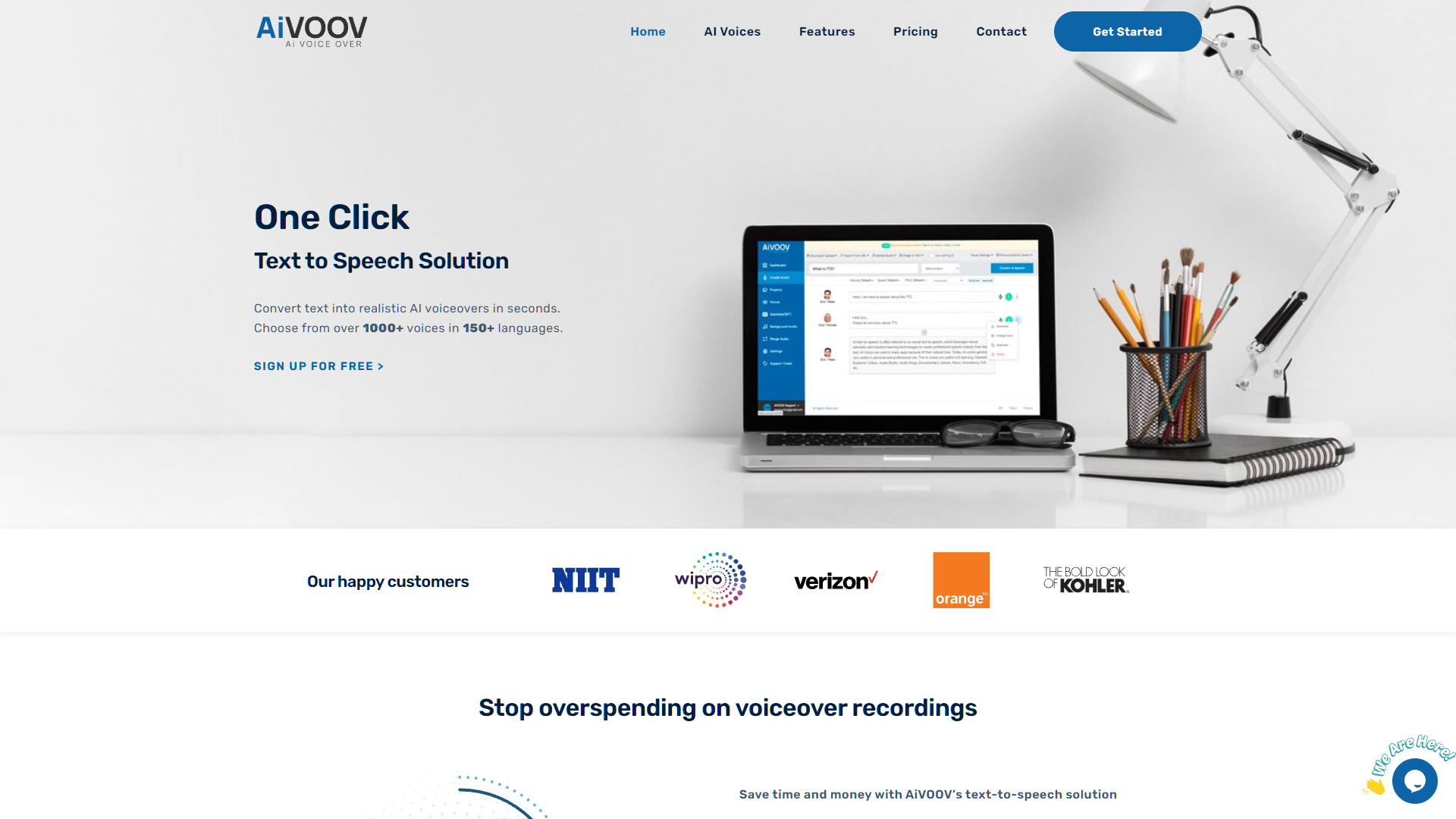Overview
AiVOOV is an innovative text-to-speech platform designed to transform written text into high-quality AI-generated voiceovers with just a click. This tool supports over 1000 voices across more than 150 languages, making it an ideal choice for a global user base. Users can start for free, creating professional voiceovers effortlessly, which is particularly beneficial for projects like YouTube videos, podcasts, IVR systems, and marketing content.
Utilizing advanced AI and neural text-to-speech technologies, AiVOOV produces natural-sounding speech that rivals traditional voiceover services, but at a fraction of the cost and time. The platform is built to be user-friendly, catering to both technical and non-technical users, and includes features such as audio to text conversion, SRT (subtitle) generation, and comprehensive project management tools.
AiVOOV also offers seamless integration with popular web platforms such as WordPress and Canva, enhancing its utility for content creators and marketers. With various pricing bundles, AiVOOV is accessible for different budgets, ensuring that users can choose a plan that best fits their needs. For those interested in exploring the capabilities of AiVOOV further, the website provides detailed information on features, pricing, and FAQs, making it easy to get started with this powerful text-to-speech solution.
Key features
- Extensive voice selection: Over 1000 AI voices across 150+ languages, enabling users to produce diverse and inclusive audio content.
- High-quality audio output: Utilizes advanced Neural Text-to-Speech technology for generating natural and realistic voiceovers.
- One-click conversion: Simple, user-friendly interface allows for quick text-to-speech conversion, enhancing productivity and efficiency.
- Multi-platform integration: Easily integrates with platforms like WordPress and Canva, facilitating seamless content creation workflows.
- Cost-effective solutions: Offers various pricing bundles to accommodate different budgets and usage requirements, making it accessible to all.
- Versatile use cases: Ideal for creating voiceovers for YouTube videos, podcasts, IVR systems, and more, catering to a wide range of industries.
 Pros
Pros
- Custom voice creation: Users can develop unique, branded voices tailored to their specific needs, enhancing brand identity and user engagement.
- Real-time processing: Offers instant text-to-speech conversion, enabling dynamic interactions in applications such as virtual assistants and customer service bots.
- Emotion-infused outputs: Capable of delivering speech with varying emotional tones to better connect with the audience and convey nuanced messages.
- Scalable for enterprises: Designed to handle large-scale deployments, making it suitable for businesses of all sizes without compromising on performance.
- Continuous updates: Regularly updated to incorporate the latest advancements in AI and machine learning, ensuring state-of-the-art voice synthesis.
 Cons
Cons
- Limited emotional range: Despite the high-quality audio, the AI voices may lack the emotional depth and variability that human narration offers.
- Dependency on internet: Requires a stable internet connection for all functionalities, which can be limiting in low-connectivity areas.
- No offline capabilities: Users cannot convert text to speech or access the tool's features without an active internet connection, hindering accessibility in remote locations.
- Potential privacy concerns: As with many cloud-based services, there is a risk of data breaches, which might concern users about the privacy of their content.
- Complex API integration: While integration is supported on some platforms, developers might find the API documentation complex, making it challenging to implement.

















